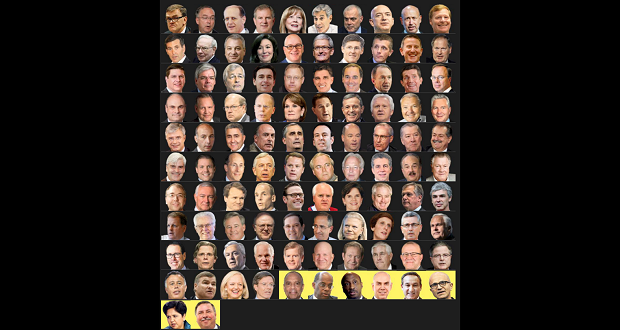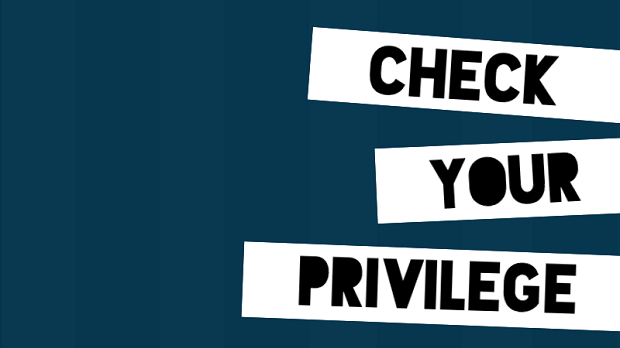
Recently, for our Unpacking the Conversations that Matter series, I wrote about people with privileged identities expressing “Distancing Statements”—those that serve to dissociate the individual from involvement in a problem. (Think, “I don’t understand how other people don’t get it,” or, “I have a lot of diverse friends.”) I explored the ways that these sentiments represent a barrier to progress in D&I spaces because they implicitly blame others while preventing the individual expressing them from engaging in self-reflection about their continued areas of opportunity. Distancing is particularly harmful because it falsely sets up a “good”/“bad” binary, when in fact each of us can simultaneously reject systems of oppression as harmful and wrong and benefit from/uphold them.
At The Winters Group, we emphasize the importance of both self- and other-understanding. Distancing statements represent barriers to both of these aims by oversimplifying narratives on each side. With this in mind, I’d like to explore a powerful alternative to distancing statements that can substantially shift our ability to understand and empathize with others:
When you encounter someone who expresses something you consider to be ignorant or problematic, pause, and ask yourself: What about your experiences or upbringing provided you with the knowledge and context you have about the topic? How might this person’s exposure to similar experiences have been different?
Ask yourself: What about your experiences or upbringing provided you with the knowledge and context you have about the topic? How might this person’s exposure to similar experiences have been different? Click To TweetThis sounds simple, but it is one of the most difficult practices to cultivate in reality because it’s much easier to make assumptions or value judgements than slow down to consider context and empathize. Yet, it’s an important part of understanding both self and others, and it can help you to be patient with others’ developmental learning journeys.
If someone expressing a homophobic comment makes you uncomfortable, this is perfectly valid. However, also consider: how did seeing or interacting with LGBTQ individuals throughout your life help you to better understand this culture, challenge biases you may have held about people from this community, or clear up misconceptions? What if this person did not (knowingly) encounter members from this community in their family, school, or workplace the way you may have? How can your own (mis)understandings from the past about this topic, or a similar one, help you to relate to this person’s lack of awareness—and to exercise patience and understanding?
This brings me to the next logical question: if we acknowledge that not everyone has had the same opportunities to develop cross-cultural understanding, does that mean you should give this person a pass or avoid correcting them? I would suggest the answer is no. So, what can you do to both respect the different access to knowledge and opportunity they may have had from your own, and challenge them to broaden their perspective?
The LARA method is an approach for dialogue across difference often used by activists and organizations to promote social change. It outlines four steps that effectively establish common ground before adding further information to support learning:
- Listen: Practice intentional, empathetic listening, truly considering the person’s perspective.
- Ex. Listen respectfully as someone shares that their cousin is getting married to another man; he’s a great guy and so is his fiancé, but they are uncomfortable with their cousin’s lifestyle and aren’t sure they want to attend the wedding.
- Affirm: Identify and name at least one element in this person’s perspective that you can agree with, or at least understand.
- Ex. “I’m glad to hear you appreciate your cousin; he sounds like a great person. And I understand why you feel strongly about this topic, especially for those of us raised in communities where we learned a very specific definition of marriage, it can be hard to change that perspective.”
- Respond: Provide a thoughtful response to the person’s question or comment that further demonstrates your engagement and listening.
- Ex. “Living in a culture where we haven’t always seen a lot of positive representations of the LGBTQ community in the media, it can also be hard to see beyond common stereotypes.”
- Add/Inquire: Add further information that the person may not have considered, and/or ask questions to help them reflect on their perspective.
- Ex. “Unfortunately, there is a lot of research that shows that biases against LGBTQ individuals lead them to experience more mental health challenges compared to their non-LGBTQ peers. The way I see it, it’s very important that people not feel excluded or like they don’t belong just because of who they may love and who makes them happy. What factors do you think may be holding you back from supporting your cousin in this way?”
From here, you can repeat this method as needed as you continue the conversation. When used correctly, the LARA method helps both individuals to better understand one another’s perspectives, and engage in Bold, Inclusive Conversations® across differences. I have used some form of this method to make progress in dialogue on countless topics with others with whom I may not have seen eye to eye, and I encourage you to try it out next time you are in a similar situation!
Additionally: you can use this model as a member of the community in discussion if you feel prepared to do so, but better yet: practice LARA as an ally to marginalized communities, helping to shift people’s perspective while removing that burden from those who are living the exhausting everyday experience of holding a marginalized identity.
We are all experts of our own experiences. It can be easy to blame others while overlooking the learning we ourselves had to experience to come to our current understanding of a topic. But this work is never done, and we can always learn from empathizing with those who have had different experiences from our own.
We are all experts of our own experiences. It can be easy to blame others while overlooking the learning we ourselves had to experience to come to our current understanding of a topic. Click To TweetShare your thoughts and experiences in the comments below! When have you succeeded in pausing to better understand and empathize with the possible origins of someone’s perspective? When might you have done a better job?


















